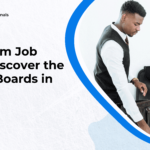Cost-Effective & Innovative Hiring: How Screening & Testing Can Save You Time & Money While Boosting Productivity
The Need for Effective Screening and Testing Methods
Traditional hiring practices, often relying solely on resumes and interviews, often fail to adequately assess candidates’ skills, capabilities, and potential fit within the organisation’s culture. This can lead to costly hiring mistakes, reduced productivity, and a lack of innovation. Effective screening and testing methods can mitigate these risks by providing a more comprehensive and holistic evaluation of candidates.
Key Components of Effective Screening
Detailed Job Descriptions: Clearly
outlined job requirements and expectations attract candidates who align with the organisation’s
needs and avoid misaligned expectations.
Pre-employment Assessments: Beyond resumes, these assessments provide insights into candidates’ skills, knowledge, problem-solving abilities, and personality traits.
Thorough Background Checks:
Validating information provided by candidates ensures a comprehensive understanding of their work history, education, and any relevant background information.
Innovative Testing Methods for a Deeper Understanding of Candidates
Simulation Exercises:
Replicating real-world job scenarios, these exercises evaluate candidates’ ability to apply their skills and knowledge in practical settings.
Examples Includes:
In-basket exercise: A candidate is given a set of emails, faxes, and other documents that represent a typical day in the role they are applying for. They are then asked to prioritise the items and take appropriate action, such as drafting replies or scheduling meetings.
Role-play: A candidate is given a scenario and asked to act out a conversation with another person. For example, a customer service representative might be asked to role-play a difficult customer interaction.
Group exercise: A group of candidates is given a task to complete together, such as building a tower out
of marshmallows or solving a puzzle. This type of exercise assesses candidates’ ability to collaborate, communicate effectively, and lead.
Cognitive and Personality Assessments: Gaining insights into candidates’ mental agility, decision-making skills, and personality traits helps predict their fit within the organisation’s culture and team dynamics.
Examples Includes:
Aptitude tests: These tests measure a candidate’s general mental abilities, such as verbal reasoning, numerical reasoning, and abstract reasoning.
Personality tests: These tests measure a candidate’s personality traits, such as extraversion, agreeableness, conscientiousness, neuroticism, and openness to experience.
Situational judgment tests: These tests present candidates with a series of hypothetical scenarios and ask them to choose the most appropriate response from a list of options.
Role-specific Case Studies:
Presenting candidates with real-world challenges faced by the organisation allows them to demonstrate their problem-solving skills, critical thinking, and ability to apply their knowledge in a practical context.
Real life Examples Includes:
A marketing manager candidate is given a case study that describes a company’s declining sales. The candidate is asked to develop a marketing plan to increase sales.
An engineering candidate is given a case study that describes a problem with a company’s product. The candidate is asked to identify the root cause of the problem and recommend a solution.
A financial analyst candidate is given a case study that describes a company’s financial situation. The candidate is asked to analyse the company’s financial performance and make recommendations for improvement.
Overcoming Bias and Ensuring Diversity and Inclusion
Unconscious bias can inadvertently influence hiring decisions, leading to a less diverse and inclusive workforce. To mitigate bias, organisations should:
Implement Blind Recruitment: Remove identifying information from resumes and other application materials to focus on candidates’ qualifications and experience.
Utilise Diverse Interview Panels:
Compose interview panels that represent the organisation’s diversity and can provide different perspectives on candidate assessments.
Conduct Inclusive Screening and Testing Methods: Ensure that screening tools and methods are culturally sensitive and do not disadvantage candidates from diverse backgrounds.
Continuous Improvement and Learning from Success Stories
Gather Feedback and Analyse Performance:
Collect feedback from the hiring team and analyse the performance of hired candidates to identify areas for improvement in the hiring process.
Examine Case Studies of Successful Implementations: Learn from organisations that have successfully implemented innovative hiring practices and adapt their strategies to fit your organisation’s needs.
Equipping Hiring Teams with the Right Tools and Knowledge
Ongoing Training and Development: Invest in ongoing training for hiring teams to stay updated on the latest trends, tools, and best practices in candidate evaluation.
Leverage Technology and AI: Utilise technology and AI solutions to automate repetitive tasks, streamline the screening process, and enhance the accuracy of candidate assessments.
Balancing Speed and Accuracy in a Fast-Paced Business Environment
Prioritise Efficiency and Effectiveness: Strike a balance between making prompt hiring decisions and ensuring thorough candidate assessments to avoid costly mistakes.
Adapt to Remote Hiring: With the rise of remote work, organisations need to adapt their screening and testing methods to effectively assess candidates in a virtual environment.
Legal Considerations and Compliance with Anti-discrimination Laws
Understand and Comply with Legal Requirements: Thoroughly understand and comply with all relevant anti-discrimination laws and regulations to ensure a fair and transparent hiring process.
Seek Legal Guidance When Needed: Consult with legal professionals when necessary to ensure compliance and avoid potential legal ramifications.
Conclusion
By implementing effective screening and testing methods, Nigerian organisations can successfully identify, attract, and retain top-tier talent. These methods, when implemented thoughtfully and strategically, can significantly contribute to an organisation’s competitive advantage, innovation, and overall success.
FAQs
How can organisations overcome unconscious bias in the hiring process?
Organisations can overcome unconscious bias by implementing strategies such as blind recruitment, diverse interview panels, and training hiring teams on bias awareness.
What role does AI play in screening CVs and conducting interviews?
AI streamlines the initial stages of the hiring process by automating tasks like CV screening and conducting preliminary interviews through chatbots.
Why is diversity and inclusion crucial in the screening and testing process?
Diversity and inclusion ensure a fair and equitable hiring process, fostering a workplace that values varied perspectives and backgrounds.
How can organisations balance the need for a quick hiring process with the
requirement for accurate assessments?
Striking the right balance involves utilising efficient tools and processes without compromising the
thorough evaluation of candidates.
What legal considerations should organisations keep in mind during the screening
process?
Organisations must understand and comply with anti-discrimination laws and other legal requirements to ensure a fair and transparent hiring process.
Sources:
Unveiling the Most Effective Screening and Testing Methods for Top-Tier Hires by Indeed
Career Advice (https://m.youtube.com/watch?v=jZM4KwPXEu8)
The Challenge of Attracting and Retaining Top Talent in Nigeria’s Competitive
Business Landscape by ThisDayLive (https://businessday.ng/technology/article/how-nigeria-can-address-rising-talent-shortage/)
Decision Makers’ Guide to Talent Acquisition and Retention in Nigeria by Growth Stack (https://www.researchgate.net/publication/340581109_TALENT_ANALYTICS_AND_EMPLOYEE_RETENTION_IN_NIGERIA_ORGANIZATIONS)
Top 6 Hiring Challenges Faced by Recruiters in 2023″ by Jobberman Nigeria (https://www.jobberman.com/discover/top-6-hiring-challenges-faced-by-recruiters-in-2023)
Osideko: Talent Shortage, Retention Biggest Challenges Facing HR in Nigeria by
THISDAYLIVE (https://www.thisdaylive.com/index.php/2023/08/02/osideko-talent-shortage-retention-biggest-challenges-facing-hr-in-nigeria)


